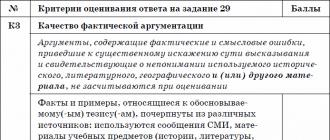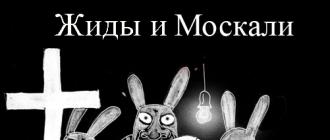The meaning of the title of the poem is the dead souls of Gogol's composition. "Dead Souls" meaning of the name What is the meaning of Gogol's dead souls
The meaning of the name and originality of the genre of the poem by N.V. Gogol "Dead Souls"
Plan
Introduction
1 Main body
1.1 The meaning of the title of the poem "Dead Souls"
1.2 Definition of N.V. Gogol of the Dead Souls genre
1.3 Genre originality of the poem "Dead Souls"
2 Conclusions on the genre originality of "Dead Souls"
Conclusion
Bibliography
Introduction
"Dead Souls" - a brilliant work of Nikolai Vasilyevich Gogol. It was on him that Gogol pinned his main hopes.
"Dead Souls" - a poem. The history of its creation covers almost the entire creative life of the writer. The first volume was created in 1835-1841 and was published in 1842. The writer worked on the second volume from 1840-1852. In 1845 he burned the finished text for the first time. By 1851 he finished a new version of the volume - and burned it on February 11, 1852, shortly before his death.
"Dead Souls" is closely associated with the name of Pushkin and was created under his influence. Pushkin gave Gogol the plot of Dead Souls. Gogol spoke about this in The Author's Confession: “Pushkin gave me his own plot, from which he wanted to make himself something like a poem and which, according to him, he would not give to anyone else. It was the plot of Dead Souls.
Soon Gogol read the first chapters of the poem to Pushkin. He himself spoke about this: “When I began to read the first chapters of Dead Souls to Pushkin in the form in which they were before, Pushkin, who always laughed when I read (he was a hunter of laughter), began to gradually become more and more gloomy. and gloomier, and finally became completely gloomy. When the reading was over, he said in a voice of anguish: "God, how sad is our Russia." It amazed me. Pushkin, who knew Russia so well, did not notice that all this was a caricature and my own invention! It was then that I saw what a matter taken from the soul means, and in general spiritual truth, and in what a terrifying form for a person darkness and a frightening absence of light can be presented. Since then, I have already begun to think only about how to soften the painful impression that "Dead Souls" could make.
Let's remember this: Gogol in Dead Souls was looking for such a combination of darkness and light that the pictures he created would not horrify a person, but give hope.
But where is the light in his paintings? It seems that if he exists, it is only in lyrical digressions - about the healing endless road, about fast driving, about Russia, which rushes like a "brisk, unbeatable troika." So something like that, but it has long been noticed that none other than Chichikov wanders along these roads, and almost in his head a reasoning imbued with lyrical pathos is born ...
The world of the poem "Dead Souls" is a world where events, landscapes, interiors, people are as reliable as they are fantastic; to shift these images in one's consciousness to one or the other pole means to impoverish them; the tension between the poles expresses Gogol's attitude towards Russia, towards its past, present and future.
So what is the meaning of the title of the poem? Why did Gogol call "Dead Souls" a poem? How to understand it?
The purpose of this study is to find out what is the meaning of the title of the poem "Dead Souls" and to explain the features of the genre of this work.
To do this, it is necessary to solve the following tasks:
1. Creatively study the poem "Dead Souls".
2. Follow the opinion of N.V. Gogol about the poem.
3. Consider critical materials about the poem "Dead Souls".
1 Main body
1.1 The meaning of the title of the poem "Dead Souls"
The name "Dead Souls" is so ambiguous that it gave rise to a plethora of reader guesses, scientific disputes and special studies.
The phrase "dead souls" sounded strange in the 1840s, it seemed incomprehensible. F. I. Buslaev said in his memoirs that when he “heard the mysterious title of the book for the first time, he first imagined that it was some kind of fantastic novel or a story like “Viya”. Indeed, the name was unusual: the human soul was considered immortal, and suddenly dead souls!
“Dead Souls,” wrote A. I. Herzen, “this title carries something terrifying.” The impression of the name was strengthened by the fact that this expression itself was not used in literature before Gogol and was generally little known. Even connoisseurs of the Russian language, for example, Professor of Moscow University M. P. Pogodin, did not know him. He wrote to Gogol indignantly: “There are no dead souls in the Russian language. There are revision souls, assigned, lost, and profited. Pogodin, a collector of old manuscripts, a connoisseur of historical documents and the Russian language, wrote to Gogol with complete knowledge of the matter. Indeed, this expression was not found either in government acts, or in laws and other official documents, or in scientific, reference, memoirs, or fiction. M. I. Mikhelson, in the collection of winged expressions of the Russian language, reprinted many times at the end of the 19th century, cites the phrase “dead souls” and makes a reference only to Gogol’s poem! Mikhelson did not find any other examples in the vast literary and vocabulary material that he looked through.
Whatever the origins, the main meanings of the title can only be found in the poem itself; here, and in general, every well-known word acquires its own, purely Gogolian connotation.
There is a direct and obvious meaning of the name, arising from the history of the work itself. The plot of Dead Souls, like the plot of The Inspector General, was given to him, according to Gogol, by Pushkin: he told the story of how a cunning businessman bought dead souls from landowners, that is, dead peasants. The fact is that since the time of Peter the Great in Russia, audits (checks) of the number of serfs were carried out every 12-18 years, since the landowner was obliged to pay the government a poll tax for a male peasant. Based on the results of the audit, “revision tales” (lists) were compiled. If in the period from revision to revision a peasant died, he was still listed on the lists and the landowner paid a tax for him - until new lists were compiled.
These are the dead, but considered alive, the swindler-dealer and conceived to buy on the cheap. What was the benefit here? It turns out that the peasants could be pawned in the Board of Trustees, that is, they could receive money for each "dead soul".
The highest price that Chichikov had to pay for Sobakevich's "dead soul" was two and a half. And in the Board of Trustees, he could receive 200 rubles for each “soul”, that is, 80 times more.
Chichikov's idea is ordinary and fantastic at the same time. Usually because the purchase of peasants was an everyday affair, but fantastic, because those who, according to Chichikov, "left only one sound, intangible to the senses, are sold and bought."
No one is outraged by this deal, the most incredulous are only mildly surprised. In reality, a person becomes a commodity, where paper replaces people.
So, the first, most obvious meaning of the name: “dead soul” is a peasant who has died, but exists in a paper, bureaucratic “guise”, who has become the subject of speculation. Some of these “souls” have their own names, characters in the poem, different stories are told about them, so that even if it is reported how death happened to them, they come to life before our eyes and look, perhaps, more alive than other “characters” .
« Milushkin, bricklayer! Could put the stove in any house.
Maxim Telyatnikov, shoemaker: whatever pricks with an awl, then boots, that boots, then thanks, and at least in the mouth of a drunk ...
Cart maker Mikheev! After all, he didn’t make any more crews, as soon as spring ones ...
And Cork Stepan, the carpenter? After all, what a force it was! If he had served in the guards, God knows what they would have given him, three arshins and a verst in height!
Secondly, Gogol meant by "dead souls" landowners-
feudal lords who oppressed the peasants and interfered with the economic and cultural development of the country.
But "dead souls" are not only landowners and officials: they are "irrequitedly dead inhabitants", terrible "by the motionless cold of their souls and the barren desert of their hearts." Any person can turn into Manilov and Sobakevich if "an insignificant passion for something small" grows in him, forcing him to "forget great and holy duties and see the great and holy in insignificant trinkets."
It is no coincidence that the portrait of each landowner is accompanied by a psychological commentary that reveals its universal meaning. In the eleventh chapter, Gogol invites the reader not only to laugh at Chichikov and other characters, but “to deepen this heavy inquiry into his own soul: “Isn’t there some part of Chichikov in me too?” Thus, the title of the poem is very capacious and multifaceted.
The artistic fabric of the poem is made up of two worlds, which can be conditionally designated as the "real" world and the "ideal" world. The author shows the real world by recreating the contemporary reality. For the "ideal" world, the soul is immortal, for it is the embodiment of the divine principle in man. And in the “real” world, there may well be a “dead soul”, because for the inhabitants the soul is only what distinguishes a living person from a dead person.
The title given by Gogol to his poem was "Dead Souls", but on the first page of the manuscript, submitted to censorship, the censor A.V. Nikitenko added: "The Adventures of Chichikov, or ... Dead Souls." That was the name of Gogol's poem for about a hundred years.
This cunning postscript muffled the social significance of the poem, distracted readers from thinking about the terrible title "Dead Souls", and emphasized the significance of Chichikov's speculations. A.V. Nikitenko reduced the original, unprecedented name given by Gogol to the level of the titles of numerous novels of sentimental, romantic, protective trends, which lured readers with amazing, ornate titles. The naive trick of the censor did not diminish the significance of Gogol's brilliant work. At present, Gogol's poem is being published under the title given by the author - "Dead Souls".
(Option 1)
The title of Gogol's poem "Dead Souls" is ambiguous. Undoubtedly, the influence on the poem of the Divine Comedy by Dante. The name "Dead Souls" ideologically echoes the name of the first part of Dante's poem - "Hell".
The very plot of the work is connected with the “dead souls”: Chichikov buys up the dead peasants, who are listed as “souls” in the revision tales, in order, having issued a bill of sale, to pledge the purchased peasants already as living ones to the board of trustees and get a tidy sum for them.
The concept of "dead soul" is associated with the social orientation of the work. Chichikov's idea is ordinary and fantastic at the same time. It is common because the purchase of peasants was an everyday affair, but fantastic, because those who, according to Chichikov, "left one sound that is not tangible by the senses, are sold and bought." No one is outraged by this deal, the most incredulous are only mildly surprised. “Never before has it happened to sell ... the dead. If I were alive, I would have given up two girls to the archpriest of the third year, one hundred rubles each, ”says Korobochka. In reality, a person becomes a commodity, where paper replaces people.
Gradually, the content of the concept of "dead soul" also changes. Abakum Fyrov, Stepan Cork, Mikhey the carriage-maker and other deceased peasants bought by Chichikov are not perceived as "dead souls": they are shown as bright, original, talented people. This cannot be attributed to their owners, who turn out to be "dead souls" in the true sense of the word.
But the "dead souls" are not only landlords and officials: they are "unrequitedly dead townsfolk", terrible "by the motionless cold of their souls and the barren desert of their hearts." Any person can turn into Manilov and Sobakevich if "an insignificant passion for something small" grows in him, forcing him to "forget great and holy duties and see the great and holy in insignificant trinkets." “Nozdryov will not be out of the world for a long time. He is everywhere between us and, perhaps, only walks in a different caftan. It is no coincidence that the portrait of each landowner is accompanied by a psychological commentary that reveals its universal meaning. In the eleventh chapter, Gogol invites the reader not only to laugh at Chichikov and other characters, but "to deepen this heavy inquiry into one's own soul: "Isn't there some part of Chichikov in me?" Thus, the title of the poem is very capacious and multifaceted.
For the "ideal" world, the soul is immortal, for it is the embodiment of the divine principle in man. And in the “real” world, there may well be a “dead soul”, because for the inhabitants the soul is only what distinguishes a living person from a dead person. In the episode of the prosecutor's death, those around him guessed that he "had definitely a soul" only when he became "only a soulless body."
This world is insane - it has forgotten about the soul, it is soulless. Only with an understanding of this reason can the revival of Russia begin, the return of lost ideals, spirituality, and soul. There can be no Manilov, Sobakevich, Nozdrev, Korobochka in this world. It has souls – immortal human souls. And so this world cannot be recreated epic. The spiritual world describes another kind of literature - lyrics. That is why Gogol defines the genre of his work as lyrical-epic, calling "Dead Souls" a poem.(Option 2)
The title of N. V. Gogol's poem "Dead Souls" reflects the main idea of the work. If we take the title of the poem literally, then we can see that it contains the essence of Chichikov's scam: Chichikov bought dead peasants ("souls").
There is an opinion that Gogol planned to create "Dead Souls" by analogy with Dante's "Divine Comedy", which consists of three parts: "Hell", "Purgatory", "Paradise". They had to correspond to the three volumes conceived by N.V. Gogol. In the first volume, N.V. Gogol wanted to show the terrible Russian reality, to recreate the "hell" of modern life, in the second and third volumes - the spiritual upsurge of Russia.
In himself, N.V. Gogol saw a writer-preacher who, painting a picture of the revival of Russia, brings it out of the crisis. When publishing "Dead Souls" N.V.
Gogol himself drew the title page. He drew a carriage, which symbolizes the movement of Russia forward, and around - skulls, which symbolize the dead souls of living people. It was very important for Gogol that the book should come out with this title page.The world of "Dead Souls" is divided into two parts: the real world, where the main character is Chichikov, and the ideal world of lyrical digressions, in which the main character is N.V. Gogol himself.
Manilov, Sobakevich, Nozdrev, the prosecutor - these are typical representatives of the real world. Throughout the poem, their character does not change: for example, "Nozdryov at thirty-five was the same as at eighteen and twenty." The author constantly emphasizes the callousness and heartlessness of his characters. Sobakevich “didn’t have a soul at all, or he did have one, but not at all where it should, but, like the immortal Koshchei, somewhere beyond the mountains and covered with such a thick shell that everything that didn’t toss and turn at the bottom did not produced absolutely no shock on the surface. All the officials in the city have the same frozen souls without the slightest development. N.V. Gogol describes officials with malicious irony.
At first we see that life in the city is in full swing, but in reality it is just a senseless fuss. In the real world of the poem, a dead soul is a common occurrence. For these people, the soul is just what distinguishes a living person from a dead one. After the prosecutor’s death, everyone guessed that he “had definitely a soul” only when “only a soulless body” remained of him.
The title of the poem is a symbol of the life of the county town N., and this city, in turn, symbolizes all of Russia. NV Gogol wants to show that Russia is in crisis, that people's souls have turned to stone and died.
In an ideal world, however, there is a living soul of the narrator, and therefore it is N.V. Gogol who can notice all the vileness of the life of a sunken city. In one of the lyrical digressions, the souls of the peasants come to life when Chichikov, reading the list of the dead, resurrects them in his imagination.
N.V. Gogol contrasts these living souls of peasant heroes from the ideal world with real peasants, completely stupid and weak, such as, for example, Uncle Mityai and Uncle Minyay.In the real world of "Dead Souls" there are only two heroes whose souls have not yet completely died, these are Chichikov and Plyushkin. Only these two characters have a biography, we see them in development, that is, before us are not just people with frozen souls, but we see how they reached such a state.
The ideal world of "Dead Souls", which appears before readers in lyrical digressions, is the exact opposite of the real world. In an ideal world, there are not and cannot be dead souls, since there are no manilovs, dogs, prosecutors. For the world of lyrical digressions, the soul is immortal, since it is the embodiment of the divine principle of man.
Thus, in the first volume of "Dead Souls" N.V. Gogol depicts all the negative aspects of Russian reality. The writer reveals to people that their souls have become dead, and, pointing out the vices of people, thereby returns their souls to life.
(Option 3)
N.V. Gogol was always concerned about the problems of spirituality - both of society as a whole and of the individual. In his works, the writer sought to show society "the full depth of its real abomination." Ironically, laughing at human vices, Gogol sought to avoid the death of the soul.
The meaning of the title of the poem "Dead Souls", firstly, is that the main character, Chichikov, buys dead souls from landowners in order to pledge two hundred rubles each to the Board of Trustees and thus make up his own capital; secondly, Gogol shows in the poem people whose hearts have hardened, and their souls have ceased to feel anything. What is ruining these officials and landowners? According to Gogol, "acquisition is the fault of everything", therefore it is the theme of the penny that appears everywhere in the work, where it is about dead souls.
Father bequeathed to Chichikov: “... take care and save a penny most of all ...” Subsequently, following this advice, Chichikov turned from an ordinary boy into a businessman and dodger, who had almost nothing sacred left in his soul. Apparently, that is why D. S. Merezhkovsky called Chichikov "the errant knight of money."
Just as the schoolboy Pavlusha sewed up five rubles into bags, Korobochka collected "little by little money into colorful bags placed in the drawers of the chest of drawers." Gogol, through the mouth of Chichikov, calls Korobochka "a clubhead", meaning, apparently, not only that she is a narrow-minded woman, but also that she is callous in soul and heart. Korobochka, like Chichikov, had only a passion for accumulation. Plyushkin also has the same trait, only in a hypertrophied form. Every day he walked around his village, picked up everything that came across his way, and put it in a pile in the corner of the room. It was about this hero that Gogol wrote: “And a person could descend to such insignificance, filth!” If we compare a bunch of Plyushkin and Chichikov's travel box, we can conclude that these are similar things, with the only difference that Chichikov has all the items: a soap dish, razors, sandboxes, inkwells, feathers, sealing wax, business tickets, theater tickets and others, papers, money - according to the plan. None of the landlords and officials have a moral life, they are spiritually dead.
Some researchers believe that the sequence according to which Chichikov got to the landlords is similar to the nine circles of Dante's hell, where the severity of sins increases from the first circle to the ninth, actually from Manilov to Plyushkin. One can disagree with this statement, but it is quite possible to assume that every landowner is a kind of sin, the severity of which can only be judged by the Lord.
In general, “Dead Souls” is a work about the contrast, unpredictability of Russian reality (the very name of the poem is an oxymoron). In the work there is both a reproach to people and delight in front of Russia. Gogol wrote about this in Chapter XI of Dead Souls. The writer argued that along with the "dead people" in Russia there is a place for heroes, because every title, every position requires heroism. Why? Yes, because they, these places, are disgraced by bribe-takers and bureaucrats. The Russian people, "full of the creative abilities of the soul", have a heroic mission. However, this mission, according to Gogol, in the times described in the poem, is practically impossible, since there is a possibility of manifestation of heroism, but behind something superficial and unimportant, the morally crushed Russian people do not see them. About this is the plot insert of the poem about Kif Mokievich and Mokiya Kifovich. However, Gogol believes that if the eyes of the people are opened to his omission, to dead souls, then Russia will finally fulfill its heroic mission.
In the poem there are also spiritually alive characters given in development. These are the peasants who died, but during their lifetime had a spiritual life: Fedotov, Pyotr Savelyev Disrespect-Trough, Stepan Cork - “the hero who would be suitable for the guard”, Maxim Telyatnikov, Grigory Get there, you won’t get there, Eremey Karyakin, Nikita and Andrey Volokita , Popov, Abakum Fyrov and others. And most importantly - this is the living soul of the narrator, and therefore it is N.V. Gogol who can notice all the vileness of the life of a sunken city.
"Dead Souls" can be considered a confessional work, since N.V. Gogol noticed shortcomings not only in those around him, but also in himself. The writer said that he endowed the heroes of the poem "in addition to their own muck with my own rubbish." Gogol believed that his work would make readers think about their soul: is it alive or not.
Perhaps the main question of the poem, which the reader inevitably asks himself: whom did Gogol have in mind when he called his work so already at the stage of conception? Answered and now answer this question in different ways, depending on the approach to the problems of the poem. The most traditional and widespread view is based on the conflict of the obsolete system of serfdom, on the one hand, and the life force of the peasantry, the soul of the Russian nation, on the other. It follows that Gogol considered landowners to be dead souls, and peasants to be alive. However, if we reduce the meaning of the poem only to this, albeit a correct judgment, the ideological pathos of the poem is simplified. Firstly, in addition to landowners and peasants, the work shows different segments of the population, social types, and individual characters. What kind of "soul" is the coachman Selifan or, for example, the prosecutor? If it is determined by social characteristics, to which category the characters belong, then the main criteria will be the origin of a person and his status; if by moral qualities, then we will call good people "living" souls, bad ones - "dead".
Let us recall Gogol's exclamation in a letter to Zhukovsky about the concept of the work: "All Russia will appear in it!" It means that the problems of the poem will affect every person. It is also important that the work received its name from the very beginning: Gogol did not mean specific people at all, but a phenomenon, a state of deadness, “deadness” of the human soul, close to the spiritual dying of the individual. The very combination “dead souls” paradoxically combines incompatible entities: death and the eternal life of the soul - and is not an ordinary literary oxymoron, but a moral and philosophical idea, a warning to a person not to lose his immortal soul. Therefore, it is wrong to point to this or that character, calling him a "living" or "dead" soul. The ideal of a spiritualized, meaningful, creative life is created in the poem - it should be considered a guideline, giving various assessments to the heroes.
Gogol saw the purpose of his poem in awakening the conscience of a person, everyone should look at himself with passion: “And which of us, full of Christian humility, not publicly, but in silence, alone, in moments of solitary conversations with himself, will deepen inside this own soul a difficult question: “Is there any part of Chichikov in me?”. Therefore, to look for the “deadness” of the soul, Gogol insisted, it is necessary first of all in oneself. Of course, this requirement is deep, general and goes beyond the limits of this literary work. In the poem, the most important factor is the responsibility of a person for his life and the fulfillment of his duty.In this respect, of course, the satirical pathos of the poem is directed at the landowners and officials.
What kind of civil and human responsibility can be discussed at the sight of the indifferent to everything, distrustful and limited Korobochka, unreasonable and reckless Nozdryov, cynical and greedy, universal abyss, unrestrained accumulator? Gogol gives the same sharp characteristics to the city bureaucracy, but still the attention to the officials cannot be compared with the most detailed description of the characters of the landowners, their way of life, estates and economy. The “landlord” chapters are distinguished against the general background of the poem by an unattainable level of artistic expressiveness; these five chapters can even be called five acts of a human comedy.
We judge the images of the peasants positively, because we know that the life of the landowner, the official, and the entire population of the country depends on their work. The source of the physical existence and spiritual life of the nation originates in the peasantry, then spreading to other strata of society. We do not see the creative work of the peasants, we do not hear folklore songs, the creative talent of the Russian common people manifests itself episodically, for example, in a lyrical digression about the Russian word or the skill of the coachman Mikheev. Gogol sees his task in showing how the creative will and vital activity of a person is suppressed under the conditions of serfdom. That is why the fate of the serfs comes to the fore. Gogol does not hide their weaknesses, shortcomings, bad qualities, that is, he does not idealize the peasants, but he does not look down on them as victims of the serfdom. The pathos of Gogol's denunciation is higher and more complex: by describing peasant destinies, the artist creates stories of the death of people who were initially deprived of the right to a free and dignified life. The fate of the carpenter Stepan Cork, whose life was broken by serfdom, is sad: he could not stop in the passion of making money, took on any job and died as a result. Gogol says here that you can earn money and buy your freedom, but you can not buy a sense of freedom, being born in captivity.
Thus, the call to be "not dead, but living souls" is directed by Gogol not only to the landowner or peasant - the hero of the work, but also to each of us. Gogol did not condemn the man, did not pursue him with his satire. There is much sorrow in Gogol's laughter, but there is also hope. In a lyrical digression at the beginning of the seventh chapter, the writer speaks of his destiny and destiny: “And for a long time it has been determined for me by the wonderful power to go hand in hand with my strange heroes, to look around the whole tremendously rushing life, look at it through laughter visible to the world and invisible, unknown to him tears! »
In May 1842, the first volume of Gogol's "Dead Souls" was published. The work was conceived by the author during his work on The Inspector General. In "Dead Souls" Gogol addresses the main theme of his work: the ruling classes of Russian society. The writer himself said: “My creation is huge and great, and its end will not be soon.” Indeed, "Dead Souls" is an outstanding phenomenon in the history of Russian and world satire.
"Dead Souls" - a satire on serfdom
"Dead Souls" - a work In this, Gogol is the successor of Pushkin's prose. He himself speaks about this on the pages of the poem in a lyrical digression about two types of writers (Chapter VII).
Here a feature of Gogol's realism is revealed: the ability to expose and show in close-up all the flaws of human nature, which are not always evident. Dead Souls reflected the basic principles of realism:
- Historicism. The work is written about the modern writer of the time - the turn of the 20-30s of the XIX century - then serfdom was experiencing a serious crisis.
- Typicality of characters and circumstances. The landowners and officials are depicted satirically with a pronounced critical orientation, the main social types are shown. Gogol pays special attention to details.
- satirical typography. It is achieved by the author's characterization of characters, comic situations, reference to the past of heroes, hyperbolization, use of proverbs in speech.
The meaning of the name: literal and metaphorical
Gogol planned to write a work of three volumes. He took the Divine Comedy by Dante Alighieri as a basis. Likewise, Dead Souls was to be in three parts. Even the title of the poem refers the reader to Christian beginnings.
Why Dead Souls? The name itself is an oxymoron, a juxtaposition of the incomparable. The soul is a substance that is inherent in the living, but not in the dead. Using this technique, Gogol gives hope that not everything is lost, that a positive beginning in the crippled souls of landowners and officials can be reborn. This should have been the second volume.

The meaning of the title of the poem "Dead Souls" lies in several planes. On the very surface - the literal meaning, because it was dead souls that were called the dead peasants in bureaucratic documents. Actually, this is the essence of Chichikov's machinations: to buy up dead serfs and take money on their security. In the circumstances of the sale of the peasants, the main characters are shown. "Dead Souls" are the landlords and officials themselves, whom Chichikov encounters, because there is nothing human, alive left in them. They are ruled by greed (officials), stupidity (Korobochka), cruelty (Nozdrev) and rudeness (Sobakevich).
Deep meaning of the name
All new aspects are opened as you read the poem "Dead Souls". The meaning of the name, lurking in the depths of the work, makes one think about the fact that any person, a simple layman, can eventually turn into Manilov or Nozdryov. It is enough to settle in his heart with one small passion. And he will not notice how vice will grow there. To this end, in Chapter XI, Gogol urges the reader to look deep into the soul and check: “Is there any part of Chichikov in me too?”
Gogol laid in the poem "Dead Souls" the meaning of the name is multifaceted, which is revealed to the reader not immediately, but in the process of comprehending the work.
Genre originality
When analyzing Dead Souls, another question arises: "Why does Gogol position the work as a poem?" Indeed, the genre originality of the creation is unique. In the process of working on the work, Gogol shared his creative findings with friends in letters, calling Dead Souls both a poem and a novel.
About the second volume of "Dead Souls"
In a state of deep creative crisis, Gogol wrote the second volume of Dead Souls for ten years. In correspondence, he often complains to friends that things are going very tight and not particularly satisfying.

Gogol refers to the harmonious, positive image of the landowner Costanjoglo: reasonable, responsible, using scientific knowledge in the arrangement of the estate. Under his influence, Chichikov reconsiders his attitude to reality and changes for the better.
Seeing in the poem "life lies", Gogol burned the second volume of "Dead Souls".





